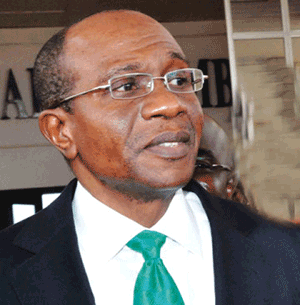Foreign exchange (forex) rate peg has been adjusted to N196.95 against the dollar from the N197 set since July.
Quoting anonymous traders, Reuters cited a broadcast from the Central Bank of Nigeria (CBN).

The peg is the sixth since the regulator introduced tight forex controls in February.
It said at the time that it would sell dollars only at N198 through the interbank channel, based on direct orders by banks.
The naira appreciated on the parallel market on Wednesday, September 30, trading N222 to the dollar, better than N224.50 the previous day, after the CBN injected $80 million into the bureau de change market.
The naira closed firmer at the new rate of N196.95 to the dollar at the official interbank market compared with N197 the previous day.
The CBN also confirmed sufficient liquidity in the financial system despite concerns that the economy is slowing.
CBN Monetary Policy Director, Moses Tule, said the decision last week to cut cash reserve ratio to 25 per cent from 31 per cent injected N300 billion naira into the system.
“There’s sufficient liquidity in the Nigerian banking system to take up whatever foreign investors may dump, so we are not disturbed,” he assured.
“By cutting the cash reserve ratio we introduced back more than N300 billion.”
But he disclosed that the CBN is “concerned that the economy is slowing.”
Prior to the move, liquidity in the interbank market had dried up after the government ordered banks to move government revenue to a single account at the CBN, as part of President Muhammadu Buhari’s anti-corruption drive.
There were fears that JP Morgan’s decision to remove Nigeria from its influential emerging markets bond index (GBI-EM) would exacerbate dumping of Nigerian bonds, added to perceived liquidity problems and pressure on national borrowing costs.
Investment funds tracking the GBI-EM index may sell Nigerian bonds, added to existing liquidity crisis.
Growth halved in the second quarter compared with the same period last year, prompting CBN Governor, Godwin Emefiele, to warn at last week’s Monetary Policy Committee meeting that the economy may slip into recession early next year.




